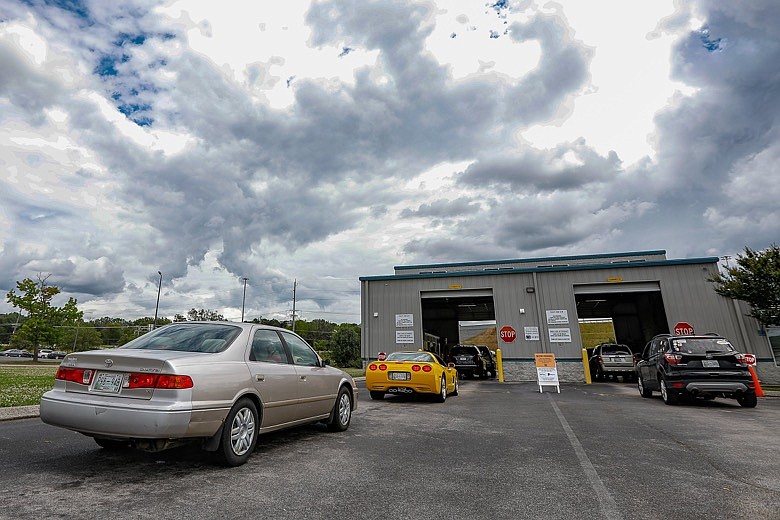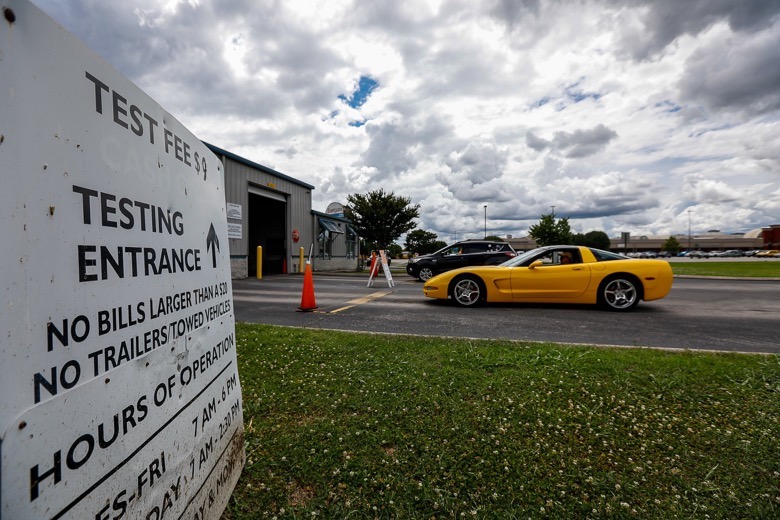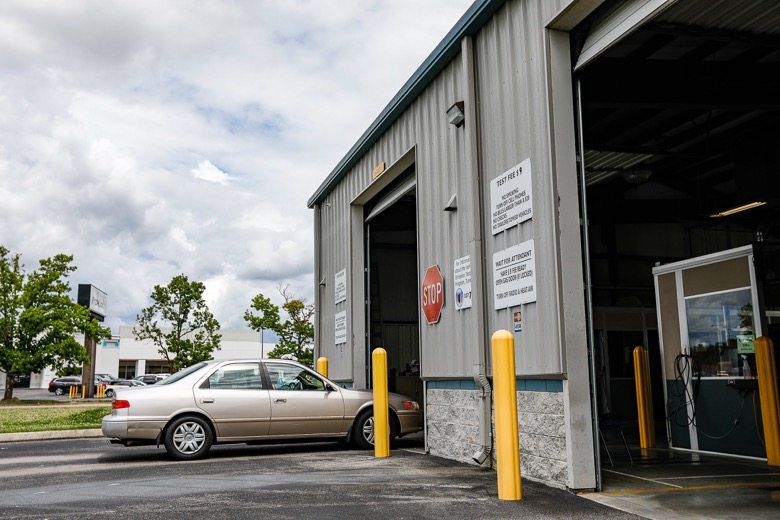NASHVILLE - Tennessee officials are optimistic that a nearly four-year-long effort to end mandatory car-and-truck emissions testing programs in Hamilton County and four mid-state counties will receive final U.S. Environmental Protection Agency approval in late August, allowing for testing to end 120 days later - in December or early January 2022.
Sen. Bo Watson, R-Hixson, along with the late Rep. Mike Carter, R-Ooltewah, sponsored the 2018 bill requiring Tennessee to apply to end the state's vehicle inspection-and-maintenance programs for Hamilton, Rutherford, Sumner, Williamson and Wilson counties.
"I anticipate we are on track for the emissions testing to be eliminated at the federal level in August," Watson said.
Watson said he would be thrilled if the program shuts down by the first of January in the five counties, adding that Metro Nashville intends to continue its program.
The process of EPA approval to end the program could draw a court challenge from Opus Inspection Inc. The company has the state contract to operate emissions testing stations for Hamilton, Rutherford, Sumner, Williamson and Wilson counties.
In a May 23 filing with the EPA, Greg Stella, an expert and former EPA official now working at Alpine Physics LLC - which specializes in research and engineering services in atmospheric science - outlined 31 pages worth of concerns.
Stella questioned Tennessee's use of some older data, some of it going back to 2008, in which Tennessee Department of Environment and Conservation officials made their case that emissions testing was no longer needed and the current state plan could be jettisoned.
Alpine Physics was retained by Opus, as was a Nashville-based attorney who wrote in a cover letter submitting the study that Opus endorses the Alpine comments and opposes lifting the requirement for inspection and maintenance programs for vehicle owners seeking to register their vehicles in the counties.
Asked whether the company might sue to block discontinuing the inspection-and-maintenance programs, Jim Sands, Opus' vice president of business development, said Tuesday in an email to the Times Free Press that "at this time we have no comment."
An Opus subsidiary, Envirotest Systems, owns the emissions testing centers in Hamilton and the four other counties. The EPA's 30-day comment period ended May 24. The EPA is expected to publish its final finding in August, the statutory deadline.
TDEC spokeswoman Kim Schofinski said if anyone does file suit in federal court to keep the programs going that "we will defend state law but cannot comment further on pending litigation."
Watson said "obviously one of the reasons that EPA's kind of taking their time is to make sure that they have it all correctly worded and everything so that it can withstand any sort of challenge. At least that's my understanding. You know, we can't stop people from suing. We just can't. So I don't think in the end they will prevail, but you can't stop them."
The process was delayed during the transition from the Trump administration to the Biden administration. According to an April 21, 2021, email obtained by the Times Free Press, TDEC Deputy Legal Counsel Emily Urban cautioned that based on discussions with federal officials, "We now understand from these conversations that EPA believes that there is a significant chance that the [program] approval will be challenged in court due to the economic interests involved."
Part of the concern was that the Trump administration's southeastern regional administrator for the EPA had signed a final approval order in mid-January 2021 that was "pre-published." But it was not published in the Federal Register, a requirement. Moreover, there was supposed to be a prepared justification accompanying the approval. But it was not included, and Biden administration officials were concerned it could leave the action legally at risk.
On April 22, the EPA submitted a "supplemental notice" for ending the emissions testing containing the agency's legal justification - this time published in the Federal Register, thus setting in motion a 30-day formal comment period that ended May 24, with final approval set for late August and the program's demise in late December or early January unless there is a lawsuit.
Scott Banbury, the Sierra Club Tennessee chapter's conservation program coordinator, said the environmental group didn't get involved in opposing ending the state's current program.
"Technically, it's not required to meet our daily attainment of ozone levels anymore," Banbury said. "There's been a lot of advances in terms of regulation of point sources."
Banbury said there have been major technological changes in the newer cars found on the road today. That has "resulted in cars being just a lot cleaner" in terms of spewing nitrogen oxide and carbon monoxide, he added.
"In most places, it is not necessary to achieve local targets for air pollution. We just didn't see it being a huge fight and totally necessary to protect human health," Banbury said.
He said the Sierra Club might have become involved if county health departments had reached out. But none did, Banbury said.
Another major factor that's helping Tennessee make its case to the EPA, Banbury said, is that the TVA has closed most of the federal utility's coal-fired power plants. And TVA is now looking at decisions over shuttering its remaining two or three coal-fired plants as well.
Watson, Carter, Sen. Todd Gardenhire, R-Chattanooga, and other lawmakers have long made the case that the state's emissions-testing requirement in the six affected counties - Knox and Shelby counties were able to get their emissions levels down low enough to get out of having the program - that lower-income vehicle owners were unfairly getting slammed by the program. While the inspection fee is just $9 annually, failing the test or even having a check-engine light illuminated can force owners to car shops for repairs costing hundreds of dollars.
"Low-income people were getting hit with high repair bills, just to get the check-engine light to turn off. So it was a little bit of a social justice issue as well," Banbury said.
Contact Andy Sher at asher@timesfreepress.com or 615-255-0550. Follow him on Twitter @AndySher1.


